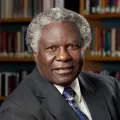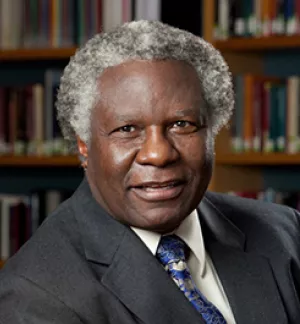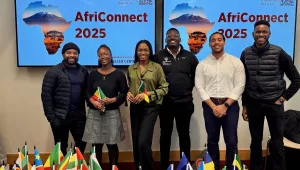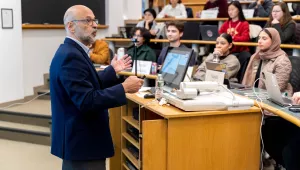I am on my way back from the World Economic Forum (WEF) meeting in Cape Town, South Africa. This was a remarkable meeting with an overwhelming intellectual energy.
The event was unique in many respects. But foremost, it was anchored by a preliminary meeting of the Grow Africa venture where private enterprises have pledged $3.5 billion in support to African agriculture. This was a serious event that involved heads of state and government from eight African countries.
I had the unique opportunity to be part of a small group of people working to connect science and technology with the larger business agenda of WEF. This group was moderated by the talented Lanre Akinola, Editor of This Is Africa, a regional brand of the Financial Times.
Lanre was superb. He had impeccable command of the details, and his ability to moderate a panel made up of ministers was truly masterful. My panel included Gunilla Carlsson (Swedish International Development Cooperation Minister), Claver Gatete (Rwandese Finance and Economic Planning Minister), and Frans van Houten (Royal Phillips Electronics CEO and Chairman).
The consensus of the panel was that Africa’s science and innovation agenda will be driven by contemporary challenges such as agriculture, health, and environment. “Africa’s solutions will help to contribute to solutions in industrialized countries in field such as green growth,” said Carlsson.
Minister Carlsson’s comments build a solid body of emerging evidence. The Swedish firm Ericsson developed the world’s first mobile phone in 1956, which weighed 42 kg. Nobody would have thought then that Africans would create a multibillion money transfer industry using mobile phones that weighed only a few ounces.
Van Houten pushed the vision even further by suggesting that Africa can do for health what it has done for mobile communication. “The prospects of reverse innovation where Africa will start to export low-cost technological solutions to the rest of the world are real,” he stressed. Indeed, Phillips and other firms such as IBM, Samsung, and Ericsson are setting up research facilities in Africa.
Minister Gatete focused his contributions on the importance of leveraging existing technologies to solve local problems. He stressed that existing technologies played a key role in the recovery of Rwanda following the genocide. “We focused on improving the livelihoods of the people through income-generating activities. Behind all these efforts lay technologies such as mobile phones. We later started to install fiber optic cables. But the creative energy lies with our people, especially farmers who were able introduce new agroindustrial processes using existing technologies.”
According to Gatete, the secret of Rwanda’s success lay in the ability of the country to create an enabling policy environment guided by a strategic vision for leveraging technology for economic revival and development. “Our Vision 2020 was critical in guiding our efforts,” he noted.
The problem-oriented focus was reinforced by Western Cape Premier Helen Zille, who noted that many South African scientists had won Nobel prizes in the sciences by focusing on solving practical problems in physics, chemistry, and medicine. African scientists have contributed to many other fields of scientific endeavor and are well positioned to do the same in the future, she said. “But they must abandon the separation between basic and applied research and focus on finding solutions to contemporary problems,” she underscored.
Africa’s prospects for technological transformation lie in the very nature of exponential growth in discovery and innovation. The continent can benefit by harnessing the fast scientific and technological advances that occurring worldwide. But to do that it needs to build the engineering capacity necessary to adapt existing knowledge to solving local problems. These solutions, according to Carlsson, can also benefit the global community in fields such as green innovation.
To realize this vision Africa will need to find innovative ways to rapidly build up its engineering capacity. Existing universities can play a role. But more needs to be done. One option is to upgrade existing engineering-oriented research institutes in line ministries to complement university efforts.
For example, ministries responsible for telecoms can take the lead in training a new generation of electronics engineers. Similarly, research and training institutes in energy and power ministries could create colleges to train professionals in their sector. Ministries of agriculture have widely distributed research institutes that could seed the next generation of technical universities.
Achieving these grand objectives will require high-level political commitment and guidance. Presidents and prime ministers will need to be routinely engaged in promoting the creation of a new generation of African professionals focused on problem-solving with competence in practical engineering and business education.
Today all African presidents are supported by economic advisors. The time has come for them to complement the work of economic advisors with science, engineering, and innovation advisors. But advisors are not just people who whisper in the ears of heads of state. They are professionals whose work is guided by proper laws, procedures, and staff trained in policy analysis.
As the World Economic Forum pushes the agenda of growing Africa’s economies—in diverse fields such as agriculture, health, and green growth—it will need to foster a new vision of the continent driven by creativity and innovation. The good news is that the continent is ready to absorb new ideas arising from WEF in its capacity as a de facto global open university.
Juma, Calestous. “Africa's New Science and Innovation Agenda.” May 14, 2013




